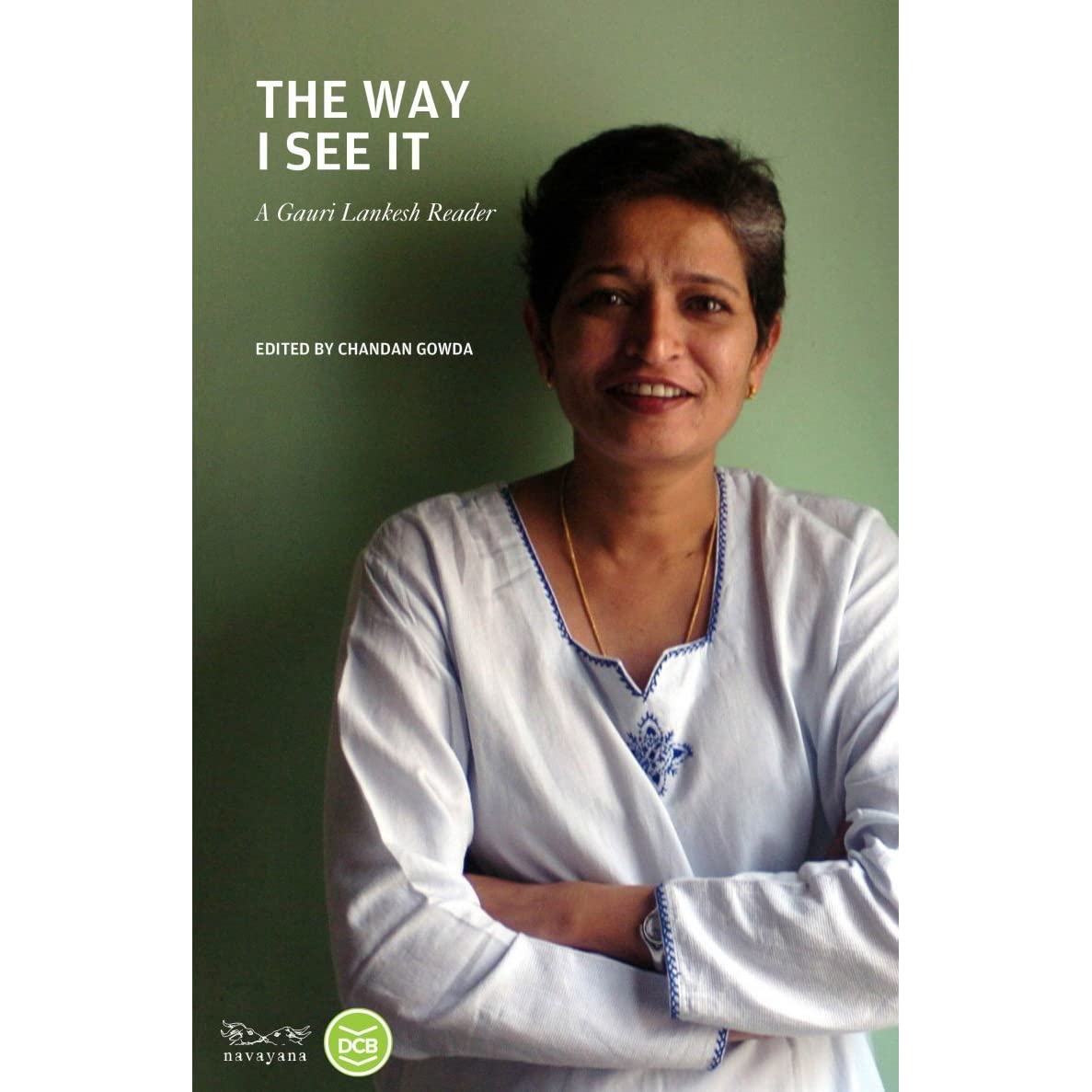
Gauri Lankesh
The Way I See It:
A Gauri Lankesh Reader
Gauri Lankesh was an activist-journalist from Bangalore, Karnataka. She was shot to death outside her home in Rajarajeshwari Nagar on 5 September 2017. At the time of her death, Gauri was known for being a critic of right-wing Hindu extremism. She was honoured with the Anna Politkovskaya Award for speaking against Hindu extremism, campaigning for women’s rights and opposing caste based discrimination. A collection of her writings, The Way I See It: A Gauri Lankesh Reader, is now available from Shalimar. More information on the book here https://indianbooksuk.com/product/the-way-i-see-it-a-gauri-lankesh-reader/.
Below is an excerpt from an article published on the 29th May in the New Statesman, which is, in its turn, adapted from Kapil Komireddi’s Malevolent Republic: A Short History of the New India, (9781787380059) published in the U.K. by Hurst.
“Unlike Muslims who deviate from Muslim fundamentalists, the editor Vir Sanghvi wrote in the Hindustan Times in 2007, Hindus who “condemn the worst excesses” of Hindu nationalists “face no real danger”. For all the noise they made about the dangers of Hindu nationalism, affluent Hindus seldom radiated fear of saffron-clad supremacists. They saw their own faith as a form of terror indemnity against the savagery of men who slaughtered Muslims and Christians. This secret sense of security bred a smug complacency that blinded them to the danger staring them in the face. But, in September 2017— almost ten years to the date after Sanghvi’s assertion about the innocuousness of Hindu nationalists appeared in print—Gauri Lankesh, a Hindu journalist who did just that, was shot dead in an ambush outside her house.
The decade in between was the decade in which Modi became the undisputed leader of the Hindu-nationalist cause. If his election to the premiership energised Hindu supremacists, his silence as prime minister emboldened them. Gauri Lankesh, the scion of a distinguished family, edited a tabloid in Kannada that hardly anybody outside Karnataka read. She struggled to make ends meet and paid the bills by writing occasionally for English newspapers. But not for her the preening platitudes about the relative harmlessness of extremists who happened to be her co-religionists: in her work and her life, she was an unrelenting critic of Hindu supremacism and Modi’s project to recast India as a Hindu nation. Seemingly well-to-do and “progressive”, she was the archetypal “presstitute” despised by Modi’s myrmidons. Her killing, and the shock it induced, was an exhilarating spectacle for them. “A bitch died a dog’s death and now all the puppies are wailing in the same tune,” a businessman in Gujarat tweeted after she was pronounced dead. Another Twitter user rejoiced: “So, Commy Gauri Lankesh has been murdered mercilessly … Amen.” Such ravings would probably not matter—were it not for the fact that the accounts that published them were among those followed by the prime minister.”
The full New Statesman article can be read here https://www.newstatesman.com/world/2019/05/indian-muslims-narendra-modi-s-emboldened-leadership-reign-terror?fbclid=IwAR2JXZeX_ryRh-WIMsS1QD5LPFO4cfC8IdBPR7anSiyZLPwdh21S81sK6Wk.
